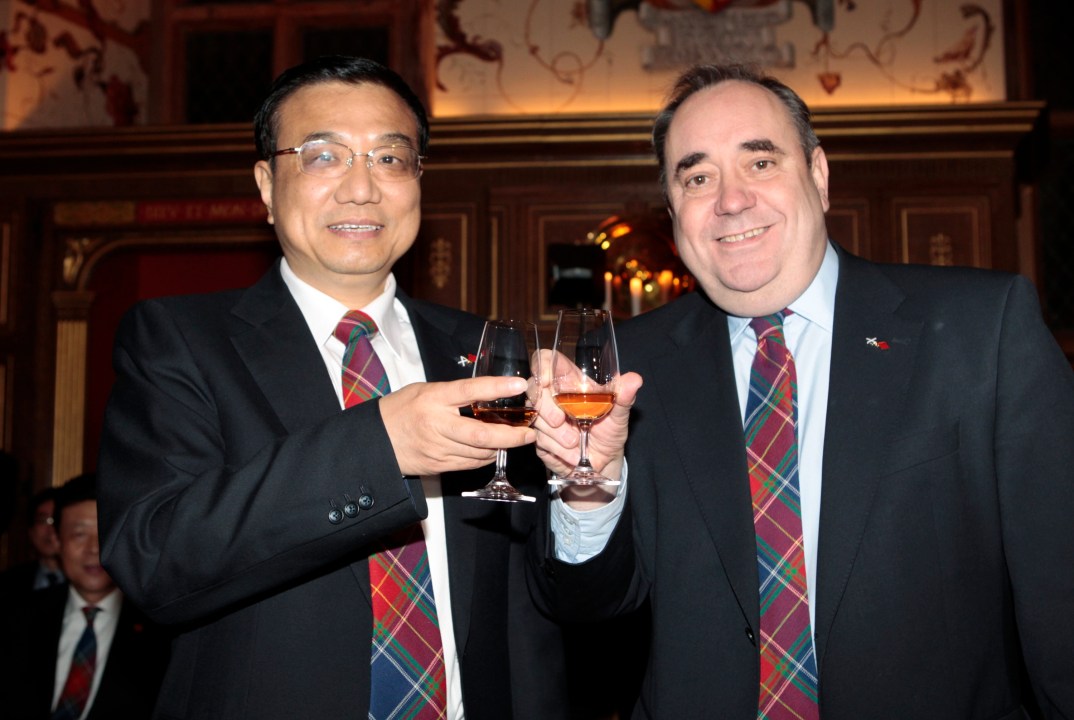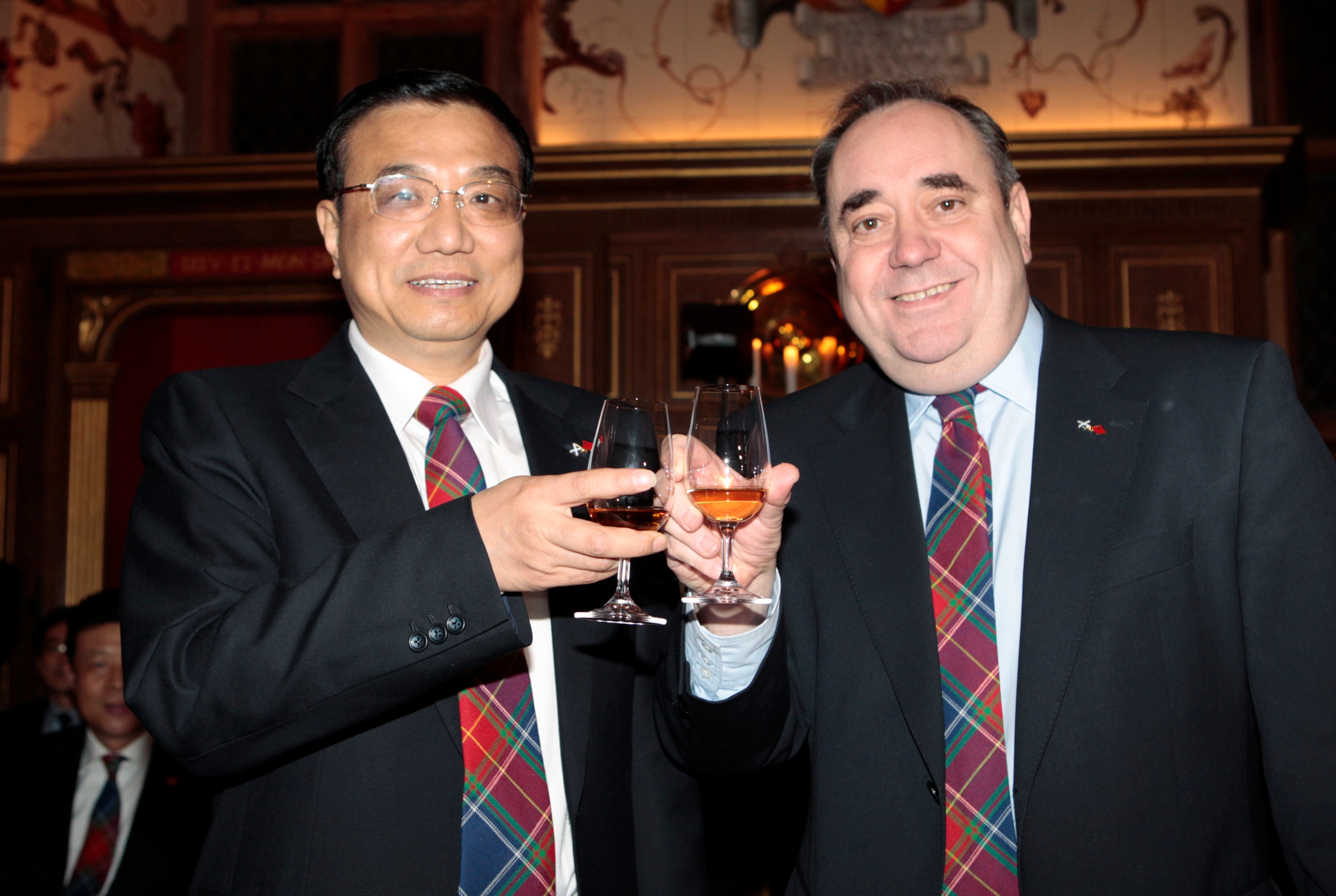Look: Alex Salmond’s indulgent appraisal of Vladimir Putin’s record was foolish and naive and all too revealing but let’s not lose the heid. Scotland, even an independent Scotland, is not going to be run by McKGB and Mr Salmond’s fondness for wealthy businessmen is not really comparable to the kleptocracy that’s run Russia this century.
Still, it is a news story and a legitimate one. Tinfoil Nationalists were very upset yesterday. Salmond was being “smeared” by, er, being quoted. GQ, clearly part of the pan-Unionist BritNat propaganda media machine, had “leaked” excerpts of their interview with the First Minister to undermine, eclipse or otherwise divert attention from a speech Mr Salmond was giving in Belgium. Because, obviously. And anyway, when was the interview given? Mid-March! Before Russia annexed the Crimea! Move along, nothing to see here. No-one, after all, could have reasonably thought Mr Putin a wrong ‘un before then.
And besides, you should always remember that the British government is always worse. Always. So Twittering Nats posted photos of David Cameron alongside Putin as G8 summits and the like and so on and expected us to believe this proved anything at all. A mass outbreak of Whataboutery that was, to be fair, no more tedious than most such pandemics.
But this is the thing: foreign policy is hard. Especially when you are leader of a country expected to have a foreign policy. Hypocrisy, as I suggested yesterday, is unavoidable. We need not salute it but nor should we shrink from it. The world is not as we might wish it to be and we have little choice but to engage with it as it is, not as it might desire it.
That’s part of the burden of being in power. It is not easy. We trim and we cope and we try not to make too many mistakes or give succour to regimes too far beyond the pale. We try to impose some limits upon their excesses even as we recognise we cannot eliminate those excesses everywhere.
An ethical foreign policy is a nonsense because the world is not an ethical place. But, as Labour’s most successful Prime Minister once said, you do what you can, where you can, when you can.
Even so, diplomacy is a delicate business. There are always trade-offs and some of them even involve trade. Calculating the national interest is not always or actually an easy thing.
So we reach an accommodation with vile regimes sometimes. Saudi Arabia, for instance. Sometimes we tacitly (or not so tacitly) aid them for fear that something even worse might replace them. At least, we assist them until they go too far or their position becomes untenable. Then it is time to switch horses. But judging when to do so, and which horse to pick, is not a simple business. Nor a clean one. And you will always be criticised. Because the balance between realism and values is not easy to find.
The thing is, Alex Salmond knows this. He has, for all the obvious reasons, very little foreign policy experience but he is, or should be, sufficiently worldly to know that expressing even qualified admiration for Vladimir Putin is an own goal and an easily-avoided one at that. Salmond doesn’t have to calculate how to respond to Russian aggression in the Ukraine while weighing that against the need for Russian assistance in other places (Iran!). He has the luxury of having no responsibility at all. David Cameron, or Barack Obama or Angela Merkel is in a rather different position. They actually have to wrestle with reality and circumstances that are not of their choosing.
Salmond has, I think, only once had to make a choice between interest and values. Or rather, since the choice is rarely as clear as that, only once has he had to weigh economic interest against a useful but largely pointless gesture. And he chose trade, not human rights.
In 2012 the Dalai Lama visited Scotland. It was not, obviously, a government-sponsored trip. Nevertheless, Tibet’s most prominent exile was received at the Scottish parliament and opposition leaders – and human rights activists – urged the First Minister to meet the Dalai Lama.
This put Salmond in an awkward position. He has been a keen booster of trade and education links with China. He values his relationship with the Chinese and thinks Scotland has gained more than just a couple of panda bears from it. He is probably right. Everyone wants to hop aboard the Chinese economic express. No-one really wants to make too much of China’s execrable human rights record. No-one really wants to dwell on the fact China’s government is, in many respects, a rotten, rancid, repellant thing. There is too much money at stake.
So Salmond decided to avoid the Dalai Lama. Nothing to do with him even though it is hard to think of many other winners of the Nobel Peace Prize whom Salmond would wish to avoid. Such encounters are usually good for a decent photo and nice, standing-boosting pieces of fluff in the papers.
Not this time. The Chinese government – via their ambassador to the UK – pressed Salmond on whether he would meet the Dalai Lama. They received the assurances they sought. This was a private, pastoral visit and there’d be no photo-op to jeopardise cosy relations between Edinburgh and Beijing.
Would meeting the Dalai Lama threaten Chinese investment in Scotland? A Scottish government spokesman did not know but assured us that “We do what is appropriate for the benefit of the Scottish people”. In other words: Beijing spank.
Not particularly honourable, perhaps, but not especially discreditable either. Trade, investment and jobs vs a meeting that would annoy China and do nothing at all to assist Tibet. Or anyone else.
That’s the way of the world. Given the test, Salmond placed realism before idealism. Which is fine.
But it is a reminder that we could cope with a little less sanctimony from the First Minister (and from his swarm of followers) and a little more humility. No-one is purer than pure. At least no-one who matters, even a little. These are not easy waters to navigate and striking a balance – of tone as well as action – is a tricky business.
So I wouldn’t say Salmond flunked his China test. You might be disappointed by his choice but you couldn’t really complain it was unreasonable. It was politics and a rare foray for a Scottish minister into the real world where real choices have real consequences.
The Putin stuff, by contrast is notable chiefly because there was no interest at stake and nothing to be gained from flinty realism. An actual, honest-to-goodness gaffe in other words. And a modestly revealing one too.








Comments